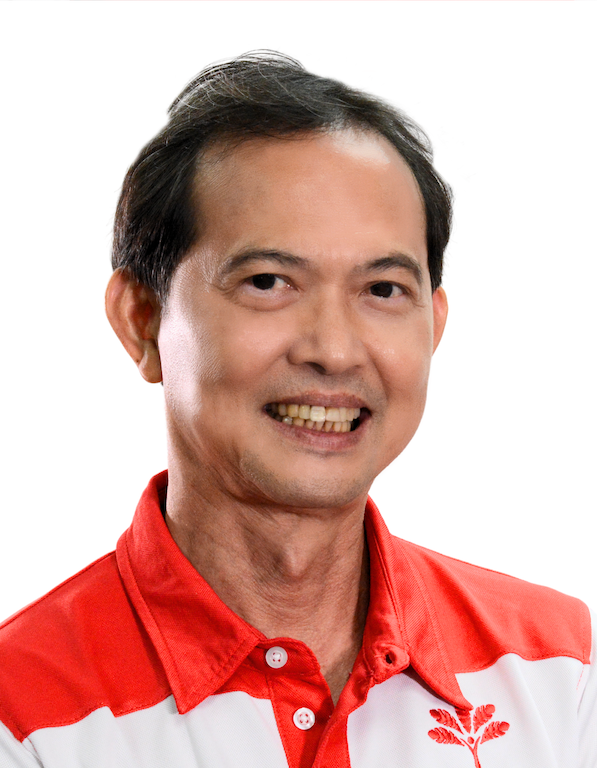Mr Speaker Sir,
Today, we are debating amendments to the Constitution to create a framework for the President and Ministers to perform foreign and international roles in their private capacity.
This Bill also appears to address urgently the circumstances of the President since his inauguration on 14th September this year.
President Tharman is extremely respected by and popular among Singaporeans. He has brought honour to Singapore with his international achievements.
Personally, I have great respect for him, and it was my honour to have worked with him briefly in the mid 80s when I was an Investment Officer at GIC and he was an Economist at MAS.
The objections that I will raise in this speech have nothing to do with President Tharman personally or his international appointments specifically. Rather, they arise from this Bill’s violation of established legal principles and principles of sound governance, which I will move on now to elaborate on.
Are the President’s international appointments currently unconstitutional?
Mr Speaker, the first question I like to raise is “are the President’s international appointments currently unconstitutional?”
Currently, under Article 19A of the Constitution, the President is not allowed to hold any other office created or recognised by this Constitution, actively engage in any commercial enterprise, be a member of any political party, or be a Member of Parliament.
The Constitution is silent on whether the President can take up foreign or international appointments but President Tharman has been holding such appointments when he was a Minister, before he was elected as the President.
Other ministers have also held international appointments over the years without question despite the Constitution also being silent on this matter. The most notable example was Mr Lee Kuan Yew who sat on the J.P. Morgan International Council while he was Minister Mentor.
So why is it so pressing to rush through these constitutional amendments now and create this framework for the President and Cabinet ministers to take up international appointments?
Is it simply because no other past President had held international appointments in their private capacity while in office? If so, then the Government should explain why there was no rush to create such a framework when a minister took up foreign or international appointments for the first time many years ago.
Why the rush?
The second question the Government has to clarify is “why is it necessary for these constitutional amendments to be rushed through Parliament and backdated.”
The Constitution is the bedrock of our nation, and any changes to it should be made with prudent consideration, transparency, and in the best interest of only the nation.
The constitutional amendments that we are debating today were brought to this House for First Reading less than three weeks ago, and Parliament has been recalled today specifically to approve this fait accompli.
Parliament is also being asked to backdate these proposed constitutional amendments to 14 September 2023, the date of President Tharman’s inauguration, through Clause 1(2) of this Bill. The retrospective amendment of any law should not be taken lightly.
The speed with which these constitutional amendments are being enacted, as well as the fact that they are being backdated, has created unnecessary unease among Singaporeans.
A segment of Singaporeans now perceives that the Constitution is being specially amended to enable President Tharman to continue serving in international organizations despite taking up his new office as President of Singapore.
Some other Singaporeans believe that the Government is establishing this framework to control what the President can or cannot say internationally, under the new Article 22Q Clause (2). Either way, this has tarnished the Elected Presidency.
Many Singaporeans wonder, if any other person had been elected President, would the Government have enacted these constitutional amendments?
PSP’s Position
Mr Speaker,
PSP believes the framework proposed in this Bill by the Government to govern the performance of foreign and international roles by the President and Ministers is not sufficient.
It is a universally recognised principle of good governance that situations of conflict of interest should be avoided as much as possible in order to maintain the integrity of public institutions. While such situations cannot be totally eliminated, the Constitution should certainly not be amended to enable such situations to arise.
The public/private capacity divide itself is controversial. If the President or Minister is truly acting in his or her “private capacity”, why then would the “national interest” be involved? It is not easy, or might even be impossible, to ensure that one capacity does not lead to advantage in the other.
If the Constitution can be amended to enable the President and Ministers to take up foreign or international appointments of an executive nature (as opposed to mere ceremonial roles), an important question which also arises is this – where does the buck stop? What more is permissible or impermissible and what principles or guidelines would such decisions be based upon?
Therefore, PSP is of the view that it is better for the President and Ministers to devote themselves entirely to their public offices in Singapore. As for these other international or foreign appointments, PSP is confident that there are other Singaporean talents suited for them.
Conclusion
Mr Speaker, in conclusion, we need a more complete explanation from the Government as to why it has rushed to pass these constitutional amendments and backdate them to President Tharman’s inauguration.
If President Tharman’s foreign and international appointments are not unconstitutional, then it is perplexing why the amendments need to be backdated, or even made at all, given that Cabinet ministers have taken up such appointments over the years without such a framework and without any question of their legality or constitutionality.
If there is a possibility that President Tharman’s foreign and international appointments are unconstitutional, then what this House is doing today creates a worrying precedent.
This House is being asked to change the highest law in the land, and backdate that change, to enable a specific individual to remain within legal boundaries.
On the other hand, some Singaporeans believe that the Government has pushed through these amendments to strengthen its control over what the President says and does abroad.
From the feedback we have gathered, there is confusion on the ground and Singaporeans need a full explanation from the Government.
Mr Speaker, the PSP do not support the bill.
For Country For People.
Thank you.

